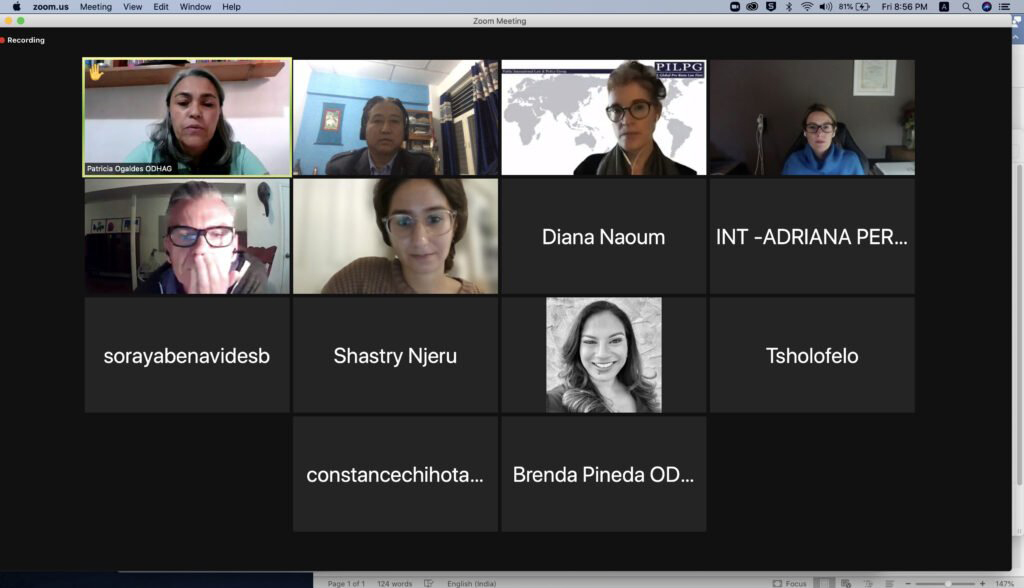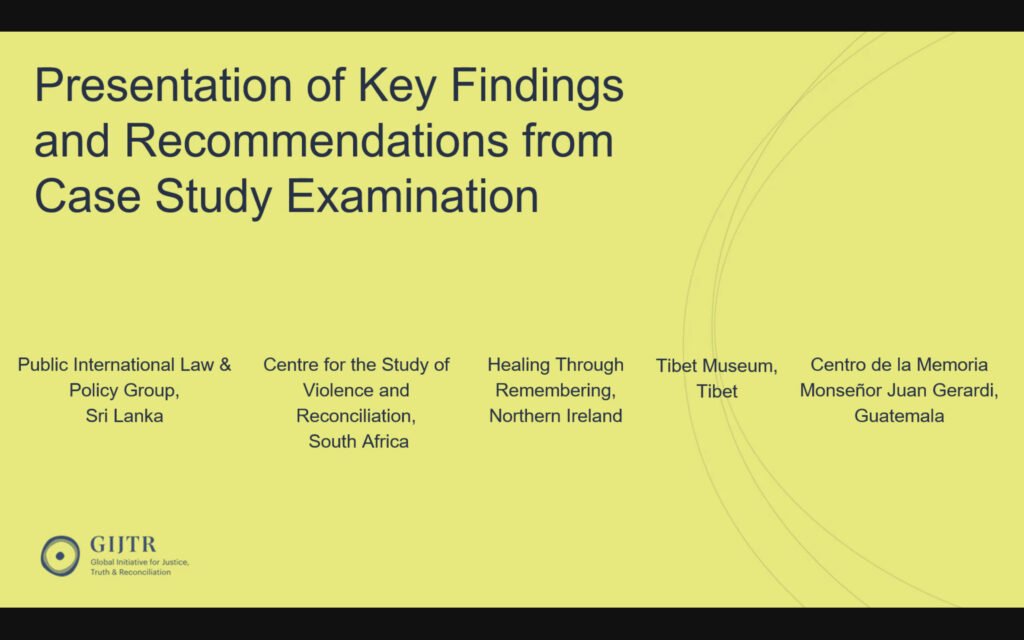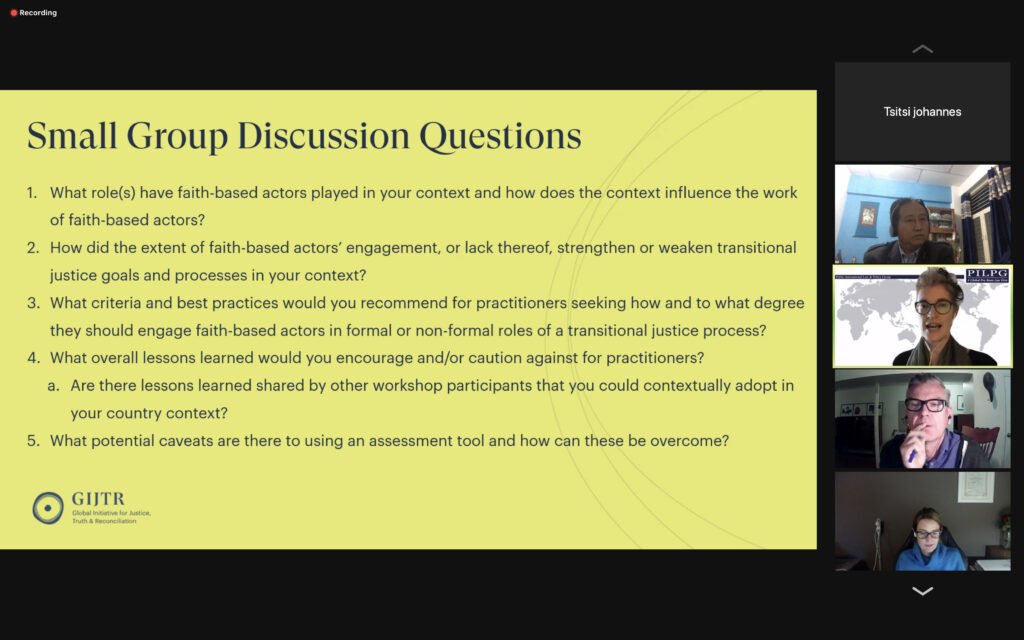The Tibet Museum participates in virtual analysis workshop on Strengthening Religious and Faith-Based Actors’ Engagement with Transitional Justice

Dharamshala: Mr. Tashi Phuntsok, Director of the Tibet Museum, Department of Information and International Relations, Central Tibetan Administration, participated in a three-day virtual analysis workshop on Strengthening Religious and Faith-Based Actors’ Engagement with Transitional Justice (TJ) from 27-29 October 2021.
On the first day of the workshop (27 October), Mr. Tashi Phuntsok presented his key findings and recommendation on the role of religious and faith-based actors’ engagement in transitional justice processes in the Tibet context. On the final day of the workshop (October 29), Mr. Tashi joined group discussions on developing criteria for the engagement of faith-based actors in transitional justice and shared Tibet experiences with other case study authors and the Zimbabwean assessment teams. Other case study authors or presenters at the workshop were Cate Turner and Brian Lambkin from Healing Through Remembering, Northern Ireland; Gugu Nonjinge from Centre for the Study of Violence and Reconciliation, South Africa; Andrew Mann from PILPG, Sri Lanka and Centro de la Memoria, Guatemala.
The workshop was aimed to convene local partners involved in the earlier phases of the project as well as the participating communities from the pilot location to share feedback and recommendations on the tool and generate criteria and guidelines for practitioners seeking how and to what degree they should engage religious and faith-based actors in formal or non-formal roles of a TJ process.
The virtual analysis workshop was organised by Global Initiative for Justice, Truth and Reconciliation (GIJTR) and the International Coalition of Sites of Conscience.
Report filed by The Tibet Museum


